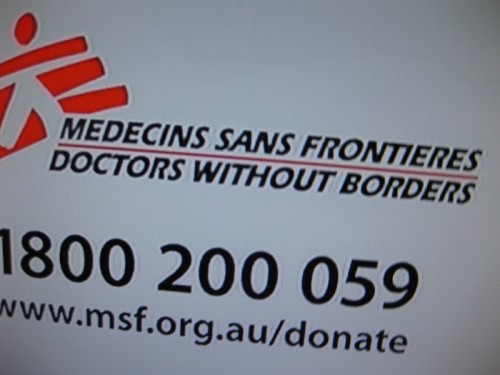
March 16, 2016; ABC News (Associated Press)
NPQ has been covering the repercussions of the U.S. bombing of a Doctors Without Borders (Médecins Sans Frontières) hospital in Kunduz, Afghanistan, that killed 42 people. Since then, while the U.S. officials involved in the bombing have been identified, the question of criminal charges has been up in the air, particularly given the allegations that the bombing was not an accident. We now know that there will not be any criminal charges filed against those responsible, but more than twelve military officials have been reprimanded over the attack that leveled a civilian hospital.
According to the Associated Press, the exact nature of the reprimands against the military officers and personnel involved has not been revealed, although it’s believed the reprimands have been mostly administrative. For example, they may keep some officials from receiving a promotion in the future.
The top U.S. commander in Afghanistan at the time, Army General John Campbell, has since stepped down from his post and will soon be retiring, calling the attack a “tragic but avoidable accident cause primarily by human error.” None of the disciplined individuals are generals. Officials have noted that the disciplinary process involving the October attack is almost complete and a redacted report will be made public within a few days.
Sign up for our free newsletters
Subscribe to NPQ's newsletters to have our top stories delivered directly to your inbox.
By signing up, you agree to our privacy policy and terms of use, and to receive messages from NPQ and our partners.
A spokesperson for Doctors Without Borders said she wouldn’t comment on the reprimands until a public announcement has been made or until the U.S. government personally contacted the charity. In October, the clinic was bombed in an attack that was later called a “mistake” by President Barack Obama. According to an explanation provided by the U.S. in November, military officials bombed the wrong target, an explanation that was largely insufficient for civil rights groups and Doctors Without Borders. At the time of the attack, the U.S. was aiding Afghan forces in facing the Taliban, which had recently taken Kunduz. The U.S. also offered to pay the families of the victims $6,000 each and survivors of the attack $3,000, which many see as grossly inadequate in proportion to the loss of life.
Almost immediately, civil rights groups brought up the issue of accountability. In the past few months, Doctors Without Borders has vehemently condemned the Afghan hospital bombing, which is only one of several bombings of its clinics in the Middle East.
“It is unacceptable,” said International President of Doctors Without Borders Joanne Liu when President Obama called to apologize, “that the bombing of a hospital and the killing of staff and patients can be dismissed as collateral damage or brushed aside as a mistake.”
Despite the lack of criminal charges, some may still hope that the U.S. is sanctioned internationally. The charity has asked for an independent war crime investigation to be conducted by the International Humanitarian Fact-Finding Commission, which would require both Afghanistan and the United States to agree. In December, Human Rights Watch charity also called for a war crime investigation into the attack.
In a letter to Defense Secretary Ashton Carter, Human Rights Watch’s Sarah Margon wrote, “As you know, individuals who commit serious violations of the laws of war with criminal intent—that is, intentionally or recklessly—are responsible for war crimes. As we set out in the appendix, the various public accounts of the incident provided by the US military and MSF to date, as well as other sources, indicate that the events of October 3rd warrant an investigation that considers criminal culpability.”—Shafaq Hasan












